
Gerson Hernández thinks people must preach their faith not only in churches but also when it comes to politics.
Yohana Mantrana has no political affiliation and she votes for whomever she considers the best candidate on Election Day.
Susana Pérez offers her vote to candidates with policies that protect people’s rights.
These three approaches offer a glimpse of the “Latino vote,” often used as a catchall term to reference the more than 34 million Hispanics eligible to vote.
This term resurfaces at every election as political analysts and advocacy groups warn against assuming the “Latino vote” is a vast, uniform group of voters. This vote is diverse and complex and Hispanics shift their vote depending on the political climate, they say.
Moreover, the diversity of political ideas and affiliations is a reflection of people coming from different experiences, national origins, religions and cultures.
Arturo Vargas, president of the Educational Fund of the National Association of Latino Appointed and Elected Officials (NALEO), said the “Latino vote” as a bloc is a myth since these voters are not a “one-issue electorate.”
“Hispanics follow elections. There is a vote intent. And what political parties and candidates have to do is pay attention to what issues are in Latino voters’ minds,” Vargas said.
According to the Pew Research Center and NALEO reports on voting behavior, the complexity of Latino voters makes it unpredictable when determining whom they plan to vote for in each election.

“What we are seeing is Latino [voters] are increasingly influential on election results for both parties,” Vargas said. “And both political parties, I think, will make a mistake if they think they have the Latino vote in their pocket.”
Valerie Martínez-Ebers, director of Latina/o and Mexican American Studies at the University of North Texas at Denton, said there is a broad diversity in how Latinos think and vote.
“Latinos are not a monolithic” voting bloc, she said.
Jens Manuel Krogstad, an analyst at the Pew Research Center, said Latinos have complex views about every topic. “There are a lot of issues they think about when they go to the polls.”
As more Latinos jointhe voting rolls, political parties and candidates have adjusted their recruitment strategies.
The “Latino vote,” said Martínez-Ebers, has accrued respect through each election cycle and parties have learned to stay away from a simplistic “Mariachi politics” approach centered on recruiting voters with ethnic fiestas, tacos and mariachi music, yet skipping providing solutions to the issues these communities face.
“Latinos are changing, their educational levels are rising [and] there are more Hispanics born in the U.S.,” Martínez-Ebers said, resulting in wider diversity in political opinions. “They want to listen about the issues.”
According to 2021 census data, Latinos account for 19% of the U.S. population. In Texas, Latinos are 40.2% of the population and 32% of eligible voters.
‘What matters to Latinos?’
The economy, gun control, the pandemic’s lasting impact, health care access and abortion are some of the issues that determine how most people plan to vote this November, according to national polls.
Clarissa Martínez de Castro, vice president of Latino Vote Initiative de UnidosUS, a Hispanic civil rights organization formerly known as Concilio Nacional de La Raza, said Hispanic voters determine their vote after they analyze campaigns and candidates and the majority reject extreme positions.
“That’s why we tend to say that the Hispanic electorate growth will be (and) can be a stabilizing force in state politics [in Texas] and certainly in the nation,” Martínez de Castro said.
Al Día spoke with six local Hispanic voters about the topics they care about and what goes into their decision when casting a ballot.
Neither Democrat nor Republican
Yohana Susana Mantrana, 42, is a lawyer who lives in Fort Worth.
Born in Cuba, she came to the United States 20 years ago. She considers herself a Christian first and then an independent voter.
She’s not affiliated with a political party, and if she doesn’t like the candidates in a given election, she skips voting.
In 2020, she said, neither Donald Trump nor Joe Biden met her expectations.
“I don’t necessarily support Democrats or Republicans. I go after the candidate; I go for what they say and their [campaign] plan,” she said.
Mantrana thinks immigration is the most important issue in this election.
“I’m an immigrant. I’m not against letting people in, but it has to be done in an organized way.”
Another issue influencing her vote in this election is the economy.
Mantrana thinks many Cuban voters support Republican candidates because they oppose socialism.
She is against abortion, but as a criminal defense lawyer, she defends women’s right to access it.
“Personally I wouldn’t do it, but I defend women’s right to have the procedure,” she said. “They don’t have to travel out of state to access it.”
Preaching about politics
Gerson Hernández, 31, is a community outreach pastor for Templo Cristiano Ágape in Irving.
He identifies as a Christian and a conservative in values and political views.
“My work these days is not so much to evangelize about my faith, but evangelize in politics —applying faith when it comes to political issues, voting [based in] your values, voting for your tenets,” he said.
Hernández was born in Fort Worth to Salvadoran parents, both of whom are pastors in his church. In March, he lost in the Legislature’s District 105 Republican primary.
His main concerns as a voter are the economy and safety.
He said his church distributes food to needy people twice a week, and lines have been growing lately.
“This is an inflation pandemic,” he said.
Hernández is against abortion and is concerned about rising crime and calls to defund the police.
“I am armed because I don’t know other people’s intentions,” he said.
He is a registered Republican Party member, but said he could potentially vote for a Democratic candidate who might be a “good-hearted person who works for their community.”
‘Mexico has more rights’
Susana Pérez, 42, said she’s Catholic and works as an administrator at Dallas College. Her politics, she said, lean to the left.
She was born in Mexico City, immigrated in 1986, and became a U.S. citizen in 2003. She votesfor Democratic candidates but also pays attention tocandidates from other parties.
“I think Democratic policies largely benefit the Hispanic community,” she said. “They provide more social resources, more social programs, they support immigrants and public education.”
Pérez considers school safety, access to abortion and policies that help immigrants the most pressing issues for this election.
“The governor’s [Greg Abbott’s] response after what happened in Uvalde — I expected a very strong gun control and less access [to weapons], more safety … but obviously, that didn’t happen,” she said.
Pérez said she thinks it is a woman’s right to decide to have an abortion or not.
“That women have more access in Mexico than here … it’s ridiculous,” she said.
“When I think that my daughter has now less access and fewer rights than my mother and myself had, I don’t understand it.”
Pérez has concerns about the country’s economic situation, but she doesn’t pin high inflation on the Biden administration.
“Right now, with what’s going on and with a Democratic president, it’s easy to say it’s because he is in office. But you have to take into account how things were when he came and what mistakes were made in the past that led to this,” she said.
‘I like Trump, but not Abbott’
Rogelio Sosa, 46, works in marketing and says he is an independent voter.
He’s Catholic and the father of three. He was born in Dallas to Mexican parents.
When voting, “I do it based on how it impacts my life, me, personally,” he said.
He voted for Trump in the 2020 presidential election because his business fared better during the Republican’s first term.
“Yes, Trump said we [Mexicans] were [part of] the cartels; that we were this and that, but at the end of the day, every race has bad people and not all of us are the same,” Sosa said.
“I, based on my personal life, know that I’m not the person Trump referred to.”
And for the Nov. 8 gubernatorial election?
He still doesn’t know how he will vote.
“I didn’t like how Abbott handled the masks (ordinances) thing (during the pandemic). How he used his power and even fought [Dallas County] Judge [Clay] Jenkins, saying not even President Biden could come here to tell him what he had to do. I didn’t like that.”
Sosa is against any person being able to buy and carry a gun. He is also against abortion, yet he would support it if a woman had been sexually assaulted or the pregnancy was putting a woman’s life at risk.
‘No one represents the people’
Julio Acosta, 37, lives in Dallas and works for a national organization devoted to attracting voters. He describes himself as a nondenominational Christian.
He has worked closely with Democratic Party candidates in community outreach efforts and thinks both parties are conservative when it comes to policymaking.
“I began to vote in 2000. Sadly, each time, I had to vote for the least worst [candidate], and honestly, I’m tired of voting like that.”
He said he thinks Republicans have veered toward extreme right policies.
Acosta said limited access to affordable housing, health care and education and an unreliable electric grid in Texas will determine thousands of votes in this election.
He said it surprised him in the 2016 election to see Latinos voting for Trump.
“Republicans use words like ‘socialism’ and ‘communism’ to scare people, stoking fear among some groups.”
Being a person of faith, abortion is an issue difficult to reconcile, he said. He said he believes human life begins at conception but said he’s learned the issue is also about health care.
“If men could get pregnant, abortion wouldn’t be banned,” he said.
‘The red tide’
Plano resident María García, 41, is president of the North Texas Hispanic Republican Club.
“I felt the call of God, saying he had something better for me. I was a mom who stayed at home to care for my children and serve God,” she said. “I stayed at home for seven years and studied the Bible. An acquaintance introduced me to politics. I thought I had to go into a church or something, but no, my path was in politics.”
García emigrated from Mexico when she was 9. She grew up in Oregon and later moved to Texas, where the state’s conservative values resonated more with her way of thinking, she said.
“I’m a Republican, but, look, I didn’t like Trump much as a person, but I did like his policies. So I voted for him, because of his policies and because he is protecting things that are important for me, like my religion,” she said.
“He prevented churches from closing [during the pandemic], and I am Christian. It’s something very important for me.”
García said she thinks the vote of Latinos will be swayed by two issues: inflation and the border.
“Many people approach the Republicans for those two things. It’s the red tide,” she said. “The climate is ready for … Republicans to win more [Latino] votes.”
Al Día writer José Luis Adriano contributed to this report.

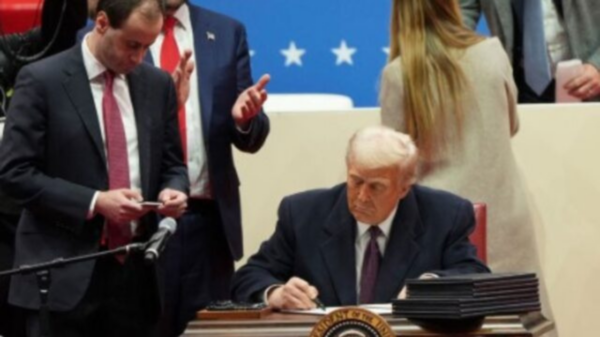

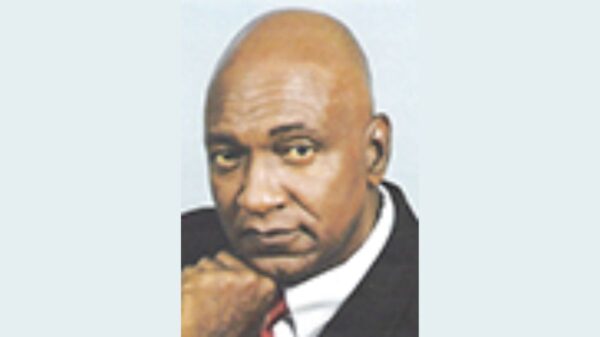

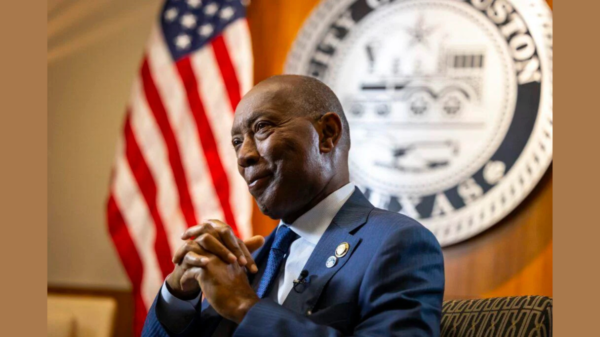
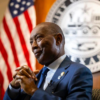
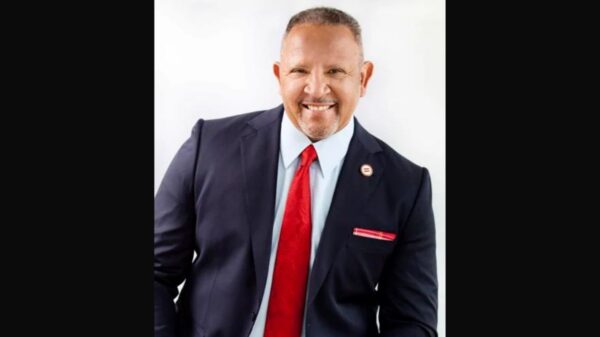

You must be logged in to post a comment Login